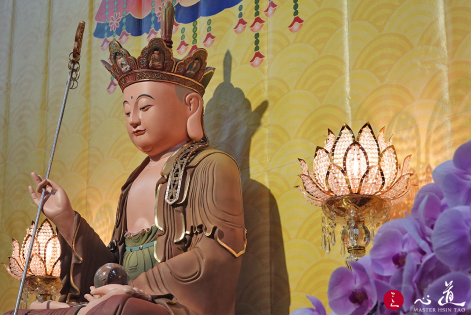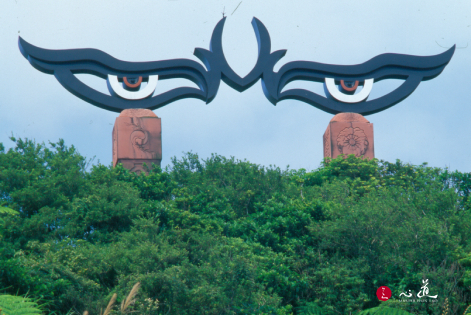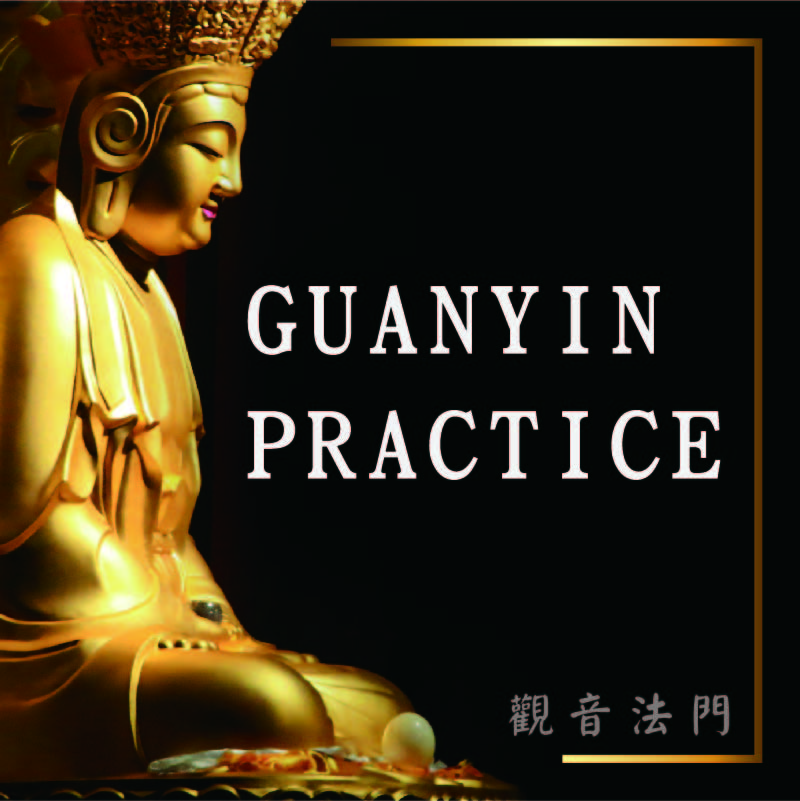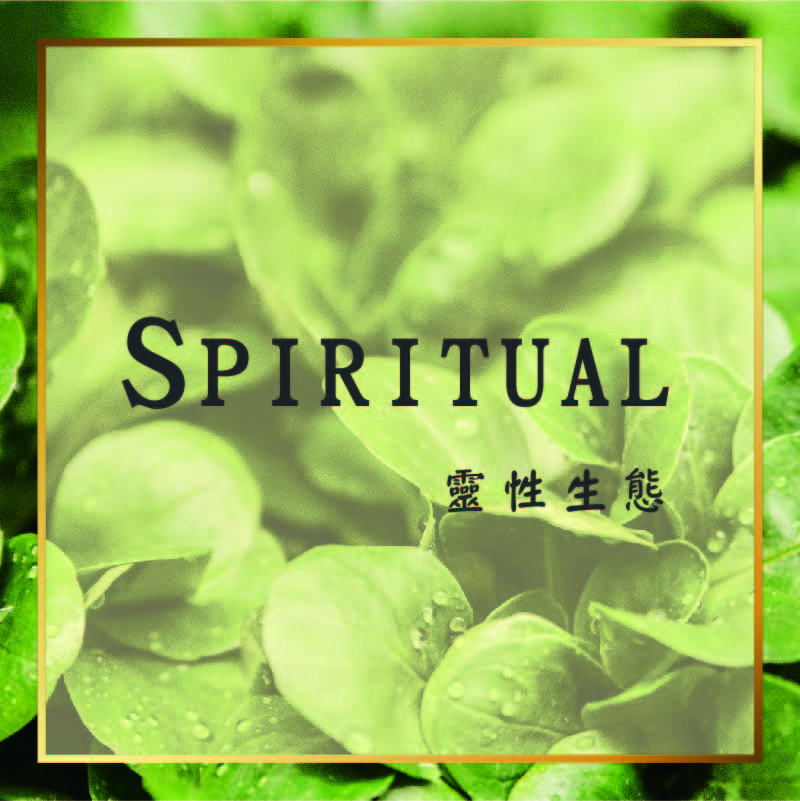
Ten Great Vows of Samantabhadra- II
-1.jpg) 6. Requesting to turn the Dharma Wheel
6. Requesting to turn the Dharma Wheel
Requesting the Buddha or qualified teachers to turn the Dharma Wheel is like irrigating our barren field of mind with the nectar of Dharma. As we are fortunate to come across Dharma today, we should propagate the teachings as extensively as possible o sentient beings. The unsurpassable wisdom of the Buddha would benefit countless beings so we must strive to create opportunities for others to explore Buddhadharma.
-2.jpg) The blessing of Dharma is inconceivable. Without the Buddha, the Dharma, and the Sangha, we'd be lost without directions, goals, and a bright prospect. We'd be turned by karma involuntarily in the cyclic existence. We have no control over what we will become. Only by Dharma practice could to recognize our Buddha-nature and aspire bodhicitta. In between moments of the incessant rising of thoughts, we can seize the opportunity to recognize our minds. Furthermore, we can inspire others to aspire to bodhicitta or the awakening mind. Hence, all the confining notions will be gone so we can attain Buddhahood.
The blessing of Dharma is inconceivable. Without the Buddha, the Dharma, and the Sangha, we'd be lost without directions, goals, and a bright prospect. We'd be turned by karma involuntarily in the cyclic existence. We have no control over what we will become. Only by Dharma practice could to recognize our Buddha-nature and aspire bodhicitta. In between moments of the incessant rising of thoughts, we can seize the opportunity to recognize our minds. Furthermore, we can inspire others to aspire to bodhicitta or the awakening mind. Hence, all the confining notions will be gone so we can attain Buddhahood.
That’s why we beseech the Buddha and spiritual teachers to turn the Dharma Wheel. Many of you have asked me to turn, but I’m just one man alone and my power is limited. Instead, I’d like to ask you all to turn the Wheel. Do your best to encourage beings to learn about Buddhadharma with assistance. Allow as many beings to benefit from Dharma as possible in daily living. That's the purpose for requesting the turning of the Dharma Wheel.
7. Requesting not to enter parinirvana
To request the Buddha or spiritual masters to remain in this world is to implore that: the Buddha, the Dharma, and the Sangha prosper along with the presence of the Buddha and spiritual teachers. The establishment of a sangha is to preserve and propagate Dharma. The prosperity of Dharma signifies the presence of the Buddha. Sanghas are the spiritual companions who guide us onto the path of practice. As long as the Three Jewels are present even just for a day, the benefits for beings are immense. Nowadays, we cannot see the Buddha in person. However, his wisdom has been passed down to monastics and laymen. So, we should request monastic sanghas to teach the Dharma. Meanwhile, lay practitioners should also aspire to assume monasticism if there’s a chance. Do not be afraid of taking monasticism. We should aspire to be a member of the monastic sangha to disseminate Buddhadharma. That way, the Buddha is present with us as long as monastic sanghas remain to propagate the teaching of the Buddha.
8. Emulating the Buddha
By emulating the Buddha is to follow the activities of the Buddha. We must study the qualities of the Buddha and emulate them accordingly. By hearing, contemplating, and practicing, we’ll change for the betterment. When one is happy to receive Dharma, one would also be delighted to share with others.
By consistently emulate the Buddha, our practice would not be interrupted. As long as our practice remains uninterrupted, we wouldn’t be lost in samsara. As if we are navigating in the ocean, we’d need a compass and a helm. Without a compass, we don’t know where we’ll end up to. Hence, we need a clear direction in life so we won’t take the wrong path to misery.
9. Complying with the Needs of Beings
Complying with the needs of sentient beings is not easy. How do we make the appropriate judgment with this? If one is doing evil acts, do we comply and agree? Of course not. What should we do then? By “complying”, we’re working with sentient beings with our awareness. Water is tender and fluid that could stream to lowlands or make turns with the geographical features. The water can seep through tiny holes unobstructedly. It could rise and flow. However, the circumstance may be, the nature of water is unchanging.
-3.jpg) Likewise, when we comply with the needs of beings, it's not that we could turn into soil, a tree, a piece of drifting wood, or a piece of iron… We uphold the same principle and nature in all circumstances. Similarly, no matter what we encounter, we remain unshakable. In a stream of water, there are good, bad, ambrosial, and smelly elements within. Yet, is the nature of water pure or contaminated? The water stays the same no matter where it goes. This is “equanimity”. The word, “complying” is to contemplate and regard everything with equanimity. As we work with all kinds of beings, our nature stays unaltered. In other words, our primordial awareness doesn’t change regardless of any influences.
Likewise, when we comply with the needs of beings, it's not that we could turn into soil, a tree, a piece of drifting wood, or a piece of iron… We uphold the same principle and nature in all circumstances. Similarly, no matter what we encounter, we remain unshakable. In a stream of water, there are good, bad, ambrosial, and smelly elements within. Yet, is the nature of water pure or contaminated? The water stays the same no matter where it goes. This is “equanimity”. The word, “complying” is to contemplate and regard everything with equanimity. As we work with all kinds of beings, our nature stays unaltered. In other words, our primordial awareness doesn’t change regardless of any influences.
10. Dedicating Merits
The last is the dedication of merits. Whatever we do, we must dedicate the merits for beings to be free from suffering and to obtain the ultimate happiness. This could be something big to a small virtuous act. We must dedicate ourselves to sentient beings instead of just ourselves. Keep in mind that by dedicating ourselves to others, we are also benefited. What are we without sentient beings? As the tathagata teaches, “all sentient beings are not sentient beings”. That’s why we must practice dedication consistently. That way, our felicity, merits, and favorable conditions can be acquired.


-list.jpg)










